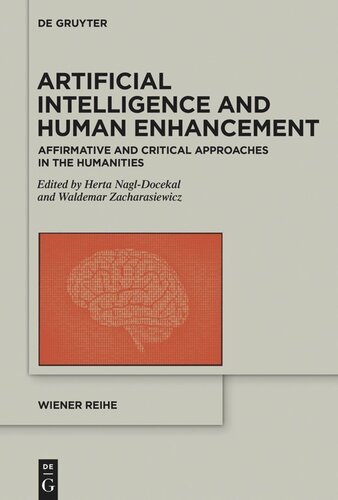

Most ebook files are in PDF format, so you can easily read them using various software such as Foxit Reader or directly on the Google Chrome browser.
Some ebook files are released by publishers in other formats such as .awz, .mobi, .epub, .fb2, etc. You may need to install specific software to read these formats on mobile/PC, such as Calibre.
Please read the tutorial at this link: https://ebookbell.com/faq
We offer FREE conversion to the popular formats you request; however, this may take some time. Therefore, right after payment, please email us, and we will try to provide the service as quickly as possible.
For some exceptional file formats or broken links (if any), please refrain from opening any disputes. Instead, email us first, and we will try to assist within a maximum of 6 hours.
EbookBell Team

5.0
68 reviewsThe technological innovations that have made "learning" computers possible are being met with utopian hopes as well as apocalyptic apprehensions. Will AI research eventually lead to software systems that have consciousness and are capable of autonomous decision making? The essays challenge "strong AI" from the perspective of human agency and moral judgment, explain the categorical difference between vulnerable humans and AI devices, and discuss diverse forms of applied AI, such as prograns of natural language processing, computional creativity, neuroenhancement, and the use of AI in international healthcare. These theoretical issues are illustrated in essays that focus on the encounter with artificial beings in film, literature and theater. Examining science fiction that blurs the borderline between humans and deep-learning androids, the essays explore, and challenge, ways of questioning human exceptionalism, for instance by visualizing non-conscious cognition and sentience. The book suggests a sober distinction between well-argued achievements of digital technology and excessive, unfounded expectations.